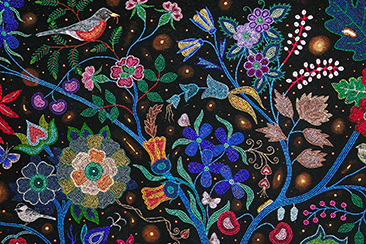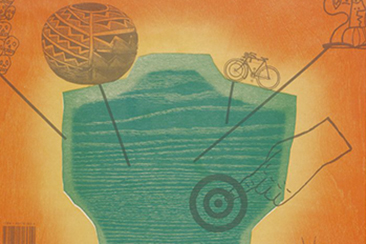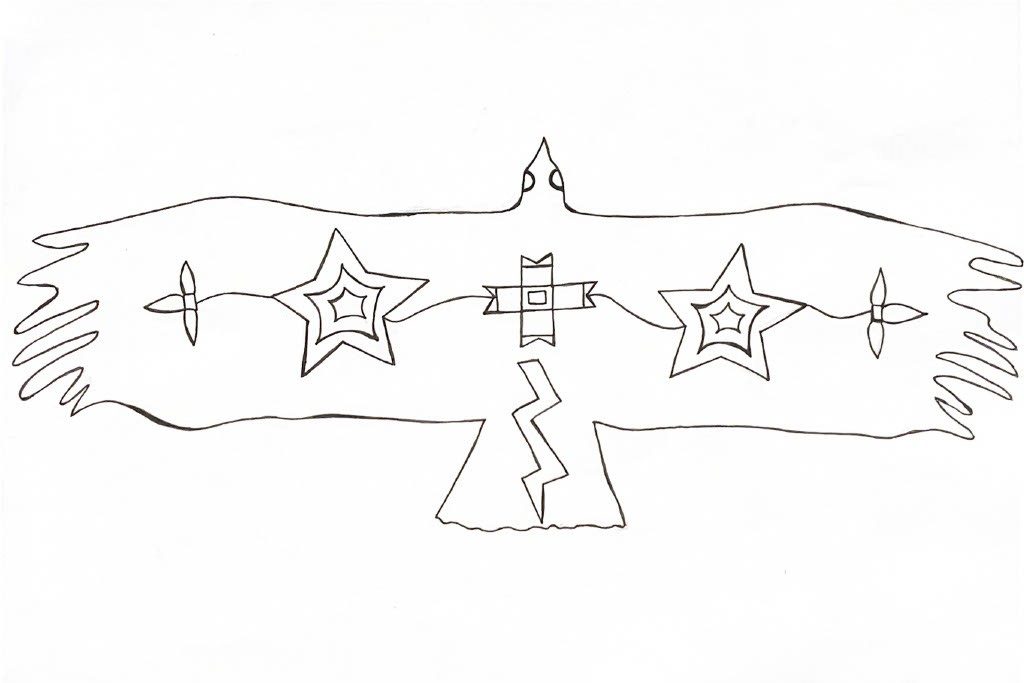
Native American Heritage at Mia
Celebrate and honor the rich and diverse cultures, traditions, histories, and artistic achievements of Native people.
Explore the history of Native American Art at Mia.
Current Exhibitions
O’ Powa O’ Meng: The Art and Legacy of Jody Folwell
On View September 14, 2024–January 26, 2025, in the Cargill Gallery.
A potter from Kha’p’o Owingeh (Santa Clara Pueblo, New Mexico), Jody Folwell has revolutionized Pueblo pottery—and Native art more broadly—over the past five decades. The first Pueblo artist to place personal, political, and social narratives on her pottery, she has pushed the boundaries of form, content, and design while remaining firmly within the art traditions of her community.
Explore Mia's Native American Art Collection
Collection on view in Galleries 259–261.
The Native American Art collection at Mia is rich in examples of the highest quality art. Experience highlights from the permanent collection here.
Self-Guided Tour
In celebrating Native American Heritage Month, we acknowledge the multiplicity of Indigenous perspectives, traditions, and visions of contemporary Native American Artists. The gallery maps on the last page of this tour identify the locations of the artworks.
Explore Past Exhibitions
Explore Mia’s past exhibitions dedicated to the art and culture of Native Americans.
Reimagining Native/American Art
What happens when Native American and American art is seen together, rather than in separate places? Might we look at these artworks in a new way? What stories and connections emerge from this new way of being together?
In Our Hands: Native Photography, 1890 to Now
Presenting over 150 photographs of, by, and for Indigenous people, “In Our Hands” welcomes all to see through the lens held by Native photographers. Open October 22, 2023 – January 14, 2024.
The Lyrical Artwork of Jim Denomie
Jim Denomie (Ojibwe, Lac Courte Oreilles Band, 1955–2022) drew inspiration from lived experiences, pop culture, Anishinaabe traditions, and American histories to tell compelling narratives that depict his experiences of being Native in America.
Virtual Care Package
Creative Nutrients for Resiliency
Resiliency is important during times of crisis. This Third Thursday, we ask ourselves: how do we refill our cups and build strong reserves that will last? Our virtual care package, a collaboration with local Native artists, teachers, healers, and elders, will share creative nutrients to draw on for hope, resiliency, healing, and joy.
Educational Resources
Explore Native American talks, programs, and presentations
Find recorded lectures, talks, and other videos on Native artists.
Native Art, Native Voices: A Resource for K-12 Learners
This resource is designed to support the integration of Native voices and art into K-12 curriculum. It includes artist interviews, essays about artworks in Mia’s collection and questions to support deep looking, critical thinking, and discussion, art lessons developed by and with Minnesota Native artists, and reading selections for students to help provide environmental context for the artworks. “Native Art, Native Voices” includes information about Native cultures both past and present and supports Minnesota state standards for visual arts and social studies/U.S. history.
Community Programs
'Keep the Fire Alive' Youth Mural
During the summer of 2020, Mia partnered with All Nations Indian Church, Indigenous Peoples Task Force, and SAMHSA Native Connections to create a mural with the Keep the Fire Alive theater troupe.
Mde Maka Ska Canoe Nations Virtual Gathering
The Minneapolis Institute of Art collaborates with Nawayee Center School and Native artists to provide creative activities as part of this annual community gathering.
Owámni Falling Water Festival
Owámni means “falling water” in the Dakota language. For the past 7 years, our partners at the Minneapolis Parks and Recreation Board have co-hosted a free and family-friendly event that celebrates Indigenous Minnesota culture with music, art, and more. This year during the month of November, the Owamni Festival offers online opportunities for people to learn more about Dakhóta and other Indigenous cultures along the Mississippi River.













